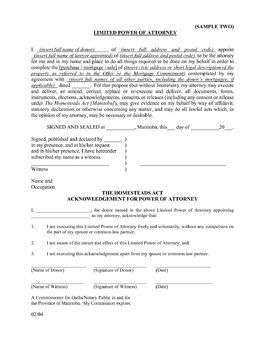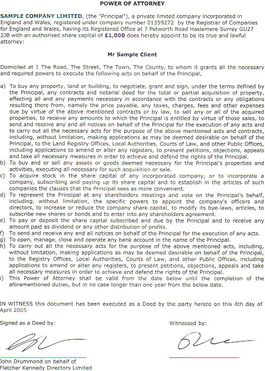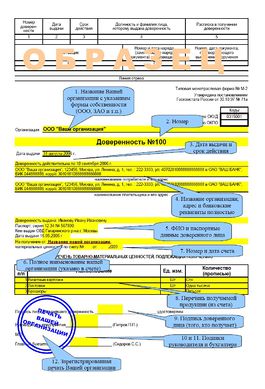Power of attorney
From Supply Chain Management Encyclopedia
Russian: Доверенность
A "Power of Attorney" is a written document often used when someone wants another physical or juridical person to handle his or her (its) financial or property matters. Powers of attorney are routinely granted to allow the agent to take care of a variety of transactions for the principal, such as executing a stock power, handling a tax audit, or maintaining a safe-deposit box. Powers of attorney can be written to be either general (full) or limited to special circumstances. A power of attorney generally is terminated when the principal dies or becomes incompetent, but the principal can revoke the power of attorney at any time[1].
The Agency Relationship - a “Principal” and an “Agent”[2]:The agency relationship legally binds you, the principal, and the person you name in the power of the attorney, the agent. With the power of attorney, you authorize the agent to do certain things or to perform certain acts on your behalf. Providing your designated agent with a power of attorney gives notice to third parties (banks, businesses, creditors, etc.) that the named agent has permission to act for you.
A general power of attorney, - designated as “general”, - authorizes your agent to do just about everything, and to do it all in your name. That includes authority to borrow money in your name, to buy or sell things in your name, and to make contracts in your name. Because the agent’s authority is almost without limit, it is vitally important you select only persons you trust without reservation. You must be confident they will act in your best interests only.
Special powers of attorney, - designated as “special”, - grant limited authority to do specific things. For example, a special power of attorney can authorize someone to search for prospects, to clear your entry, to ship export goods, or to buy or sell anything without granting authority to do anything more. The focus is on the performance of one or two isolated acts. As with a general power of attorney, be sure the named agent is someone you trust without reservation.
References
- ↑ Power of Attorney - http://www.mncourts.gov/selfhelp/?page=406 - accessed 05/22/2012
- ↑ Legal Briefs - http://www.knox.army.mil/sja/documents/Adlaw/POA.pdf







